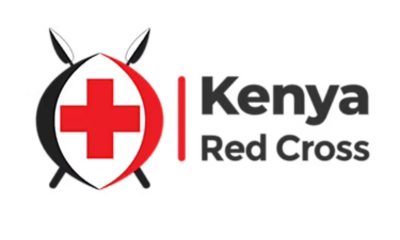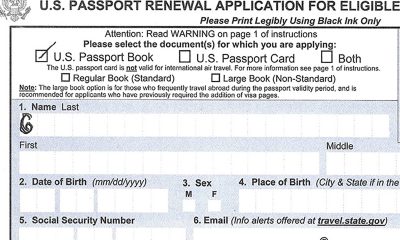India
India’s Transgender Welfare Boards fail to meet trans people’s basic needs
Committees have only been established in 17 regions

Nineteen of India’s 28 states and eight union territories lack a functional Transgender Welfare Board, despite legal mandates.
Most of the boards that have been established in 17 regions operate without policies, compliance framework, or any substantial authority. This lack of oversight, combined with an absence of policies, has left transgender Indians without access to critical services.
India’s 2011 Census says there are 487,803 trans people in the country, yet only 5.6 percent have managed to apply for a trans identity card. These identity cards, essential for accessing government programs designed specifically for trans people, remain challenging to obtain, hindering access to crucial welfare programs.
Under the Transgender Persons (Protection of Rights) Act 2019 and its 2020 rules, 17 states and union territories, including Assam, Bihar, Chandigarh, Chhattisgarh, Gujarat, Jammu and Kashmir, Kerala, Maharashtra, Manipur, Meghalaya, Mizoram, Rajasthan, Tamil Nadu, Telangana, Tripura, Uttar Pradesh, and West Bengal, have notified the establishment of a Transgender Welfare Board. Rule 10(1) of the law, however, mandates all state and union governments must constitute a board to safeguard trans rights, promote their interests, and facilitate access to government welfare schemes.
Reports reveal most Indian states with a notified Transgender Welfare Board have held fewer than one meeting per year since their inception, raising concerns about the effectiveness of these boards. States such as Gujarat, Jammu and Kashmir, Chhattisgarh, Manipur, and Tripura have yet to disclose any updates on their boards’ activities. Notably, Gujarat’s Transgender Welfare Board, established in collaboration with UNAIDS in 2019, reportedly did not hold a single meeting until Oct. 14, according to board members.
Only a few states and union territories saw any regular activity from their Transgender Welfare Boards in 2023; with Tamil Nadu, Kerala, Chandigarh, and Maharashtra holding just four meetings each. Other states have held fewer meetings or none at all since the board’s formation.
In states like Mizoram, the Transgender Welfare Board has not held meeting since its creation.
In Manipur, the board has been virtually defunct since its establishment in 2017. Although the state’s reappointed the 17-member board last year, it included only minimal trans representation, with one trans woman and one trans man appointed.
The Punjab and Haryana High Court in 2022 criticized the Chandigarh Transgender Welfare Board for its insufficient activity, describing it as a mere “cosmetic feature” in a Public Interest Litigation filed by Yashika, a trans student. The court observed that the board had failed to meet regularly, hindering its ability to fulfill its duties and effectively support the trans community.
“Although the petitioner had submitted complaints in this regard to the Union Territory Administration, no relief was granted and, thus, it is essential to ensure that bodies such as the Transgender Welfare Board acquire teeth and do not remain cosmetic features,” said the High Court. “Meetings should be held more frequently so that issues likely to arise in the future can be anticipated.”
An Amicus Curiae the Kerala High Court appointed in 2021 reported the Kerala State Transgender Justice Board had not held a single meeting that year.
Since its creation under the Social Justice and Empowerment Ministry, the National Council for Transgender Persons has held only two meetings in the past four years. Reports also suggest that budget allocations for state Transgender Welfare Boards often vary based on the ruling political party.
Maharashtra in 2020 allocated approximately $602,410 to its welfare board, but no further budget was earmarked for the board after the government changed.
Souvik Saha, founder of Jamshedpur Queer Circle, an LGBTQ organization that conducts sensitization workshops with law enforcement and local communities, criticized the frequent inaction of Transgender Welfare Boards.
“As an LGBTQ rights activist and head of Jamshedpur Queer Circle, I find it deeply disheartening yet unsurprising that only 5.6 percent of transgender people in India possess a transgender ID card. This figure underscores the systemic barriers faced by the transgender community when accessing their rights,” said Saha. “The example of Gujarat’s Transgender Welfare Board, which despite its collaboration with UNAIDS was dormant for nearly four years, illustrates how bureaucratic inefficiency and lack of political will stymie progress. Similarly, Mizoram’s board has yet to hold a single meeting, reflecting the widespread neglect of transgender issues.”
Souvik further said the situation in Jharkhand mirrors these national trends.
The state’s Transgender Welfare Board, though established, has faced challenges in regular functioning and proactive policy implementation. Reports from local community members highlight that meetings are infrequent and the board’s activities lack sufficient outreach. Trans people in Jharkhand, as a consequence, face barriers in securing IDs and accessing welfare schemes, contributing to a continued cycle of marginalization.
Saha told the Washington Blade that inaction within Transgender Welfare Boards stems from a lack of political will, bureaucratic hurdles, social stigma, marginalization, and inadequate representation. His organization has encountered numerous stories reflecting these challenges, with community members expressing frustration over the stagnant state of welfare boards and the difficult process of obtaining official recognition. Saha emphasized that these systemic barriers leave many in the transgender community struggling to access the support and resources they are entitled to.
“For any meaningful change, it is essential that welfare boards function effectively, with regular meetings, transparent procedures, and active community involvement,” said Saha. “The government must take urgent steps to address these issues, enforce accountability, and collaborate with local LGBTQ organizations to bridge the gaps between policy and practice.”
Meera Parida, a trans activist from Odisha, told the Blade that while the previous state government implemented numerous welfare initiatives for trans individuals, it fell short of establishing a dedicated Transgender Welfare Board.
“Back then it was Biju Janata Dal party leading the state and now it is Bharatiya Janata Party (BJP) still there is no Transgender Welfare Board in the state,” said Parida. “After the Supreme Court’s judgement, it was our thought that some radical change is coming, nothing short of that happened. Most of the governments have no interest in it and that is why this is not happening.”
Parida told the Blade it was also her failure as she was associated with the previous government and in the party, but she was not able to convince her political party to establish a welfare board for trans people.
The Blade reached out to UNAIDS for reaction, but the organization has yet to response.
India
Opposition from religious groups prompts Indian Pride group to cancel annual parade
Event was to have taken place in Amritsar on April 27

Pride Amritsar, a student-led organization in the Indian state of Punjab, earlier this month announced the cancellation of its Pride parade that was scheduled to take place on April 27, citing opposition from certain religious groups.
The event, planned for the Rose Garden in Amritsar, a city revered as a spiritual center of Sikhism, had faced mounting resistance from Sikh religious organizations, including the Nihang Singh faction and the Akal Takht, the faith’s highest temporal authority. These groups labeled the parade as “unnatural” and urged local authorities to deny permission, citing its potential to disrupt the city’s religious sanctity.
In an Instagram post on April 6, Pride Amritsar organizers Ridham Chadha and Ramit Seth elaborated on its mission and the reasons for the cancellation.
“Since 2019, we have organized peaceful parades and celebrations in Amritsar to connect and uplift the LGBTQIA+ community, with a particular focus on transgender individuals and their rights,” their statement read.
Chadha and Seth highlighted Pride Amritsar efforts in providing guidance, counseling, and job opportunities, which have been met with positive responses. However, due to opposition this year, Pride Amritsar announced the cancellation of the 2025 parade.
“We have no intention of harming the sentiments of any religious or political groups,” the statement read. “The safety of our members is our top priority, and we will take all necessary measures to ensure their protection.”
Chadha and Seth spoke with the Washington Blade about their decision to cancel the parade.
They explained that resistance came from both religious and political groups who labeled the parade and its values as anti-Sikh and contrary to Punjabi and Indian cultural norms. Critics specifically objected to the event’s location in Amritsar, a city regarded as a sacred center of Sikhism, arguing that the parade would disrupt its spiritual purity.
Chadha and Seth stressed Pride Amritsar lacks political, financial, or legal support. Composed of students and young professionals, the group organizes the parade biennially, dedicating personal time to advocate for the LGBTQ community.
“We do it independently, crowdfund the parade and cover the rest with our pockets,” said Seth and Chadha.
When asked by the Blade why Pride Amritsar did not approach the High Court or local authorities to protect the parade, despite the Supreme Court’s 2018 ruling that decriminalized consensual same-sex sexual relations, Chadha and Seth cited significant barriers.
“Pursuing legal action in India requires substantial resources, both financial and temporal,” they explained.
Chadha and Seth also noted that such action could lead to public shaming and unwanted publicity for participants, potentially harming their careers in Amritsar. They therefore chose not to pursue legal recourse.
Chadha and Seth said Pride Amritsar does not have any plans to hold alternative events.
“We are still exploring options, but we are likely not holding any events this year,” they said, citing significant harassment that organizers faced and the need for time to plan how to best serve the local LGBTQ community moving forward.
“Our evaluation of what the biggest challenge is has changed after this year,” said Chadha and Seth to the Washington Blade. “The biggest challenge, by far, seems to be education. We need to educate the community about what the community is, does, and why it exists. Why we do parades. Why we dance. Why calling someone ‘chakka’ is harmful. How we actually fit into religion and fall within the guidelines.”
Chadha and Seth said organizing the parade in Amritsar since 2019 has been an uplifting experience, despite continued opposition.
“The moment you join the parade, chant a slogan, or sing a song, it’s transformative,” they said. “Fear vanishes, and a sense of freedom takes over.”
The cancellation of the 2025 Amritsar Pride Parade has sparked concerns among activists in Punjab, as the Indian Express reported.
The Punjab LGBT Alliance and other groups expressed concern that the decision to cancel the parade may strengthen opposition to future LGBTQ-specific events.
India
LGBTQ poets included in India’s premier literary festival
Sahitya Akademi seen as mirror of government’s cultural agenda

India’s premier literary institution on March 7 announced it would allow LGBTQ poets to participate in its marquee Festival of Letters in New Delhi.
The Sahitya Akademi, often seen as a mirror of the government’s cultural agenda, for the first time allowed these poets into a high-profile poetry reading at the Rabindra Bhavan. They shared the stage with more than 700 writers across 50 languages.
Culture and Tourism Minister Gajendra Singh Shekhawat kicked off the Festival of Letters with Mahesh Dattani, the acclaimed English-language playwright famed for his provocative works, as the main guest. Dubbed Asia’s grandest literary gathering, the Sahitya Akademi took place over six days under the “Indian Literary Traditions” theme.
The 2025 Festival of Letters showcased a sweeping range of voices — young writers, women writers, Dalit authors from marginalized castes, Northeast Indian scribes, tribal poets, and LGBTQ poets — cementing its reputation as a literary kaleidoscope.
Kalki Subramaniam, a leading transgender rights activist and author, on March 9 chaired a literary session titled “Discussion on Literary Works of LGBTQ Writers in the 21st Century,” which spotlighted contemporary queer voices.
“It was enriching to listen to the profound thoughts of LGBT writers from various parts of the country in their speeches,” said Subramaniam. “The session was particularly memorable with the participation of A. Revathi Amma from Tamil Nadu, Reshma Prasad from Bihar, Sanjana Simon from New Delhi, and Devika Devendra Manglamukhi and Shivin from Uttar Pradesh and Aksaya K Rath from Orissa.”
Subramaniam discussed how global politics shape gender rights and the persistent erasure of trans identity, urging a unified push for solidarity within the LGBTQ community. She stressed the vital need to elevate queer works and writers, casting their voices as essential to the literary vanguard.
“It was a pleasure to meet great writers from around the country in the festival as well as meet my writer activist friends Sajana Simon and Revathi Amma after a long time,” said Subramaniam.

The government on March 12, 1954, formally established the Sahitya Akademi. A government resolution outlined its mission as a national entity tasked with advancing Indian literature and upholding rigorous literary standards; a mandate it has pursued for seven decades.
The Sahitya Akademi in 2018 broke ground in Kolkata, hosting the country’s first exclusive gathering of trans writers, a landmark nod to queer voices in Indian literature.
Hoshang Dinshaw Merchant, India’s pioneering openly gay poet and a leading voice in the nation’s gay liberation movement, on March 9 recited a poem at the Festival of Letters, his verses carrying the weight of his decades-long quest for queer recognition. He later thanked the session’s chair for welcoming the community, a gesture that underscored the event’s third day embrace of diverse voices.
The Sahitya Akademi in 2024 honored K. Vaishali with the Yuva Puraskar for her memoir “Homeless: Growing Up Lesbian and Dyslexic in India,” a raw account of navigating queerness and neurodivergence. Vaishali in a post-win interview reflected on India’s deep-seated conservatism around sexuality, noting she wrote from a place of relative safety — an upper-caste privilege that shielded her as she bared her truth. The award, she said, was the Akademi’s indelible seal on her lived experience, a validation no one could challenge.
The Sahitya Akademi’s inclusion of LGBTQ writers in its main program this year jars with the Bharatiya Janata Party-led government’s conservative stance, which, in 2023, opposed same-sex marriage in the Supreme Court, arguing it erodes Indian family values. Yet, under Shekhawat, the Sahitya Akademi’s spotlight on queer voices at the Rabindra Bhavan suggests it could be a tentative crack in a regime typically rooted in tradition.
The Festival of Letters hosted a translators’ meeting on March 10, spotlighting P. Vimala’s 2024 award-winning Tamil translation of Nalini Jameela’s “Autobiography of a Sex Worker,” a work steeped in marginalized voices that include queer perspectives.
This platform gained significant support from the BJP-led government, with Shekhawat securing a 15 percent budget increase to ₹47 crore ($5.63 million) in 2024. In Tamil Nadu state, however, Dravida Munnetra Kazhagam’s Chief Minister Muthuvel Karunanidhi Stalin, has long opposed such cross-linguistic efforts, fearing dilution of Tamil identity amid decades of anti-Hindi sentiment — a tension the Sahitya Akademi’s inclusive showcase sought to bypass.
‘The Akademi is very inclusive and has a friendly festival ambience,” Subramaniam told the Washington Blade.
India
LGBTQ Indians remain vulnerable to dating app scammers
Gay man in Mumbai lost nearly $11K in 2024

Swiping right has become a pricey trap for many in India, where Grindr and other dating apps serve as stalking grounds for scammers spinning fake profiles, sob stories, and shattered promises. This deception hits the LGBTQ community hardest, with reports indicating hundreds of people are duped each year.
The modus operandi of these scams unfolds when an LGBTQ user connects with a match on Grindr or Tinder, someone claiming to be from the U.S. or Europe, and the texts spark a flawless romance, until a frantic call shatters the illusion. They’ve flown to India to meet them, they say, but customs officials at the airport have detained them for carrying wads of foreign cash. A desperate plea follows: Send money to settle fines, with a hollow vow to repay once released—a vow that vanishes the moment the payment lands.
Although dating apps have tightened policies to shield users—Match Group, Tinder’s parent company, rolled out a campaign across Tinder, Hinge, Match, Plenty of Fish, and Meetic with in-app tips to spot scams—fraud persists. Delhi Police on Jan. 11 busted a gang that targeted gay men on Tinder, luring them with fake profiles promising shared desires, then holding them hostage to extort cash. A minor was among the five people who authorities arrested.
Though India decriminalized homosexuality in 2018, lingering social stigma still marks LGBTQ people as prime targets for dating app scammers.
Noida police in Uttar Pradesh state in 2020 dismantled a gang that honey-trapped at least 10 professionals on a gay dating app, robbing two of them of $500 and $1,700 respectively. Gurugram police in Haryana, a bustling tech and finance hub, that same year nabbed another gang that preyed on more than 50 users of the same app.
Scammers often dig deep, coaxing out home addresses, job details, and family ties from their targets—sometimes with an accomplice who turns violent, assaulting the victim. Activists, however, note most of them don’t come forward to the police, silenced by India’s staunchly conservative mores that allow catfishers to slip away and target more people unchecked.
A 28-year-old gay man in Mumbai in March 2024 fell prey to a dating app scam, losing nearly $11,000 to a man posing as a Texas-based doctor.
After striking up a friendship online, the scammer promised an expensive watch as a gift—only to call the next day, claiming he’d been detained at Delhi’s airport for carrying a hefty sum of foreign currency. Moments later, a supposed customs officer named Priya demanded $859 in taxes to secure his release. What began as a single payment spiraled into a financial abyss, with the victim funnelling roughly $11,000 in a month, the Indian Express reported.
“These incidents have grabbed headlines recently. Scammers create fake profiles, build trust with their targets, and then hit them with extortion demands, threatening to out them to family or friends, said Ankit Bhuptani, an LGBTQ activist who founded Queer Hindu Alliance. “It’s a cruel twist of the knife, preying on the fear of societal rejection that still lingers despite legal progress.”
“Even though the Supreme Court struck down parts of Section 377 in 2018, decriminalizing homosexuality, the reality on the ground is that acceptance isn’t universal,” added Bhuptani. “Families and communities can still be harsh, and these scammers weaponize that vulnerability. The fact that arrests have been made—like those recent busts in Ghaziabad and Noida—shows the police are acting, but the persistence of these scams tells us we have got a long way to go.”
Bhuptani noted that a mix of technological, societal, and legal challenges fuels these scams. He said scammers thrive because dating apps can be a Wild West—fake accounts are easy to set up, and AI tools make them even more convincing.
“I have heard of cases where victims lost lakhs (thousands of US dollars), like that guy in Ghaziabad who was blackmailed for 1.4 lakhs ($1,700) after being filmed in a compromising situation. It’s predatory and shameless,” said Bhuptani. “The emotional toll is just as bad as the financial hit—imagine the terror of being outed in a society where many still see being gay as taboo.”
Bhuptani argued India’s legal framework is primed to tackle dating app scams, pointing to constitutional protections—Article 14’s equality guarantee and Article 15’s anti-discrimination shield the Navtej Johar ruling, which decriminalized homosexuality in 2018, bolstered. He noted that blackmail and extortion already fall under Indian penal code Sections 383 and 384, while the IT Act can pin scammers for online fraud and identity theft.
“The problem isn’t the laws; it’s enforcement and awareness. Police need better training to handle queer-specific cases with sensitivity, and dating apps must step up—think stricter verification, AI-flagging of suspicious profiles, and user education on spotting red flags,” said Bhuptani. “But laws alone won’t fix this. Society’s got to shift. As long as being LGBTQ carries a stigma, scammers will have leverage. We need campaigns—loud, bold ones—pushing acceptance, normalizing queer identities, and making it clear that outing someone is not a weapon that works anymore.”
Pune police, meanwhile, on Feb. 27 filed an First Information Report against a gang that blackmailed a gay man on a dating app, bleeding him of $1,248 over five months.
-

 Virginia2 days ago
Virginia2 days agoYoungkin calls on gay Va. GOP LG candidate to exit race over alleged ‘porn’ scandal
-

 Commentary5 days ago
Commentary5 days agoA conversation about queers and class
-

 Kenya4 days ago
Kenya4 days agoKenya Red Cross-owned hotel to host anti-LGBTQ conference
-

 Opinions4 days ago
Opinions4 days agoNavigating employer-sponsored health insurance, care








